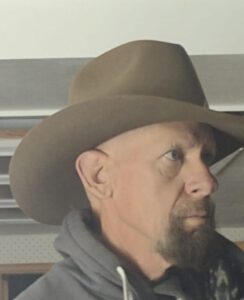At the north end of Wallowa County, Oregon, there are 21 registered voters in the school district. Three kids in the school. The extension agent hasn’t been to my place in over 25 years. There are no weekly visits, no workshops or field days. We figure most decisions will be made without us. Still, we leave the keys in the truck—not because we’re trying to make a point, but because someone might need it. Or because if you stole a truck out here, someone would recognize you before you hit pavement.
That kind of trust still works, mostly. It’s not perfect, and it sure doesn’t mean everything’s rosy. We’ve got problems like anywhere—alcohol’s a regular guest around here, and there’s been more than one bad dispute, including a cattle fight that ended in gunfire and two men dead. But drugs? Not much, at least not in this corner of the county. And for all the rough edges, there’s still a kind of ethic that holds the place together. Not because we’re better, but because we have to rely on each other. You know who’ll help you pull a calf at 3 a.m., who’ll bring fuel when your tractor runs dry, and who’ll tow you out of a ditch—whether you deserve it or not.
The most important thing about rural trust is that it doesn’t announce itself.
In some ways, the most important thing about rural trust is that it doesn’t announce itself. Nobody makes a speech about community. But when the hay gets wet or a trailer goes off the road, someone shows up. I’ve come home to find a neighbor had baled for me while I was stuck in town. No note. No invoice. Just a job that needed doing. That’s the currency we trade in—not favors, but follow-through.
I’ve worked in 17 countries, including Kazakhstan, Malawi, and now, for a good portion of the year, Rwanda, where I run a demonstration farm at the end of a dirt road. What I’ve seen is that community, real community, doesn’t depend on how nice the houses are or how clean the data is. It comes down to whether folks are known, whether they feel like they matter to the people around them. When that’s the case, trust starts to show up. When policy shows up first, with no relationship behind it, community never emerges.
In some parts of rural America, the handshake still means something. And not in a nostalgic, Norman Rockwell kind of way—but because your word still matters. When someone buys hay from me and says, “I’ll pay you when I sell my calves this fall,” that’s enough. I don’t ask for a contract. Because out here, your name is your bond, and a reputation—good or bad—travels fast, and asking for a contract would be downright insulting. It’s not that people are saints. It’s just that if you don’t follow through, you’ll be seen for what you are. When a neighbor’s tractor breaks down during harvest, folks show up and finish the job. There’s no form to fill out. No funding mechanism. Just the old agreement that says, “You’d do the same for me.” Cities build trust in surprising ways. Rural places do too. The truth sits in the tension between a man’s intentions and his actions. Between the generosity offered and the help accepted. Between independence and vulnerability.
What I’ve learned is that trust in rural places isn’t built on virtue; it’s built on visibility. It’s knowing you’ll see the person again. That your kid plays Little League with theirs. That if your fence is down or you’re short on hay or the irrigation line snaps, somebody will notice—and probably show up. Out here, we don’t sort people by degrees or credentials. It’s not race or age or gender that determines your standing—it’s whether you’ll show up, work hard, and stick with the job when it turns sideways. Grit and competence still carry more weight than identity or talk. Doesn’t mean everything’s fine. Just means you’re not alone.
I remember being in the sandy lands of Kazakhstan doing a pre-project survey. We were supposed to talk with farmers, get a feel for the landscape. I saw a guy on a horse moving a few hundred sheep. We stopped, and I walked over with my translator to say hello. He looked me over, said something short, then got off the horse, handed me the reins, walked over to my Land Rover, and climbed in. My translator passed along the message, “He’ll talk to you when you get these sheep to water.” And they drove off. Just like that.
The horse was manageable but a bit rank. The sheep weren’t hard to move either. They were thirsty and knew where they were going, which helped. The problem was, I didn’t. It was steep, hilly terrain, and I didn’t know where the water was. So I started scanning the land, looking for signs—trails where animals had moved in groups before. Places where the footing seemed worn, the brush pressed down. I let the sheep take the lead and kept them moving. A couple of hours later, we came over a ridge, and there it was—a pond, a small shack, and my Land Rover. The farmer handed me a bottle of water. We sat and talked for a long time. He became one of my best friends on that project. But he wasn’t going to waste time on someone who didn’t understand the work. That was the test.
You can’t convince someone to believe in your solution if you don’t understand their reality or their problems.
That kind of test still exists in most rural places. And it’s why so much of the national conversation in the USA falls flat when it tries to talk about rural Americans. When you assume everyone has broadband, or that college is the default path, or that you can engineer trust through programs and apps, it doesn’t land. It just doesn’t. You can’t convince someone to believe in your solution if you don’t understand their reality or their problems.
When we started in Rwanda, we didn’t have much more than a tarp, a few tools, and a plot of land at the end of the road. We chose that spot not because it was easy, but because it was the kind of place most projects avoided. Too remote. Too poor. Too disconnected. At the time, I’d been asked to help write a $37 million USAID grant by three US universities I had worked with in various countries. I wrote it, but I stepped away from the project when I saw that the universities only wanted sites close to paved roads. Easy access. Predictable outcomes.
So I looked at the poorest district—Ngoma—and went to the end of the road. Literally. The farm sits on the end of a peninsula in Lake Mugesera. For the first two years, the only way to reach it was an hour-and-a-half drive on rough dirt, followed by nearly an hour by boat in a little vessel we built ourselves. The thinking was simple: if we could build a real farm there, make it work, and just be a neighbor, it would prove more than any demo plot near a highway ever could. I don’t believe in proof-of-concept on the easiest ground. You find out what’s real by planting it in the hardest soil. These are the people that aren’t going to listen to some white guy from the states telling them how to farm. Eight years later, I’m just a farmer to them, and we see change happening.
The district government welcomed us with open arms. When you’re governing the poorest area in the country, any ray of light matters. A few years in, our little farm was featured on national television and the Minister of Agriculture called it “the shining star of Rwandan agriculture.” That was nice. But honestly, I don’t care much about that. The highest praise I’ve received came from the farmers around me. They call me “neighbor.” And that’s the accolade that matters.
Most of what we’ve done there didn’t come from a toolkit or a development playbook. It came from staying in place, screwing things up, fixing them, and showing up again the next day. That kind of presence doesn’t scale easily, but it sticks.
And that’s the thing about rural trust. You can’t buy it. You can’t shortcut it. You have to be there. You have to stick.
I still leave the keys in the truck. In Oregon. In Kazakhstan. In Rwanda. Not because I believe people can’t do wrong, but because in these places, we still know whose truck it is. And that still counts for something.
Image Credit: PxHere




